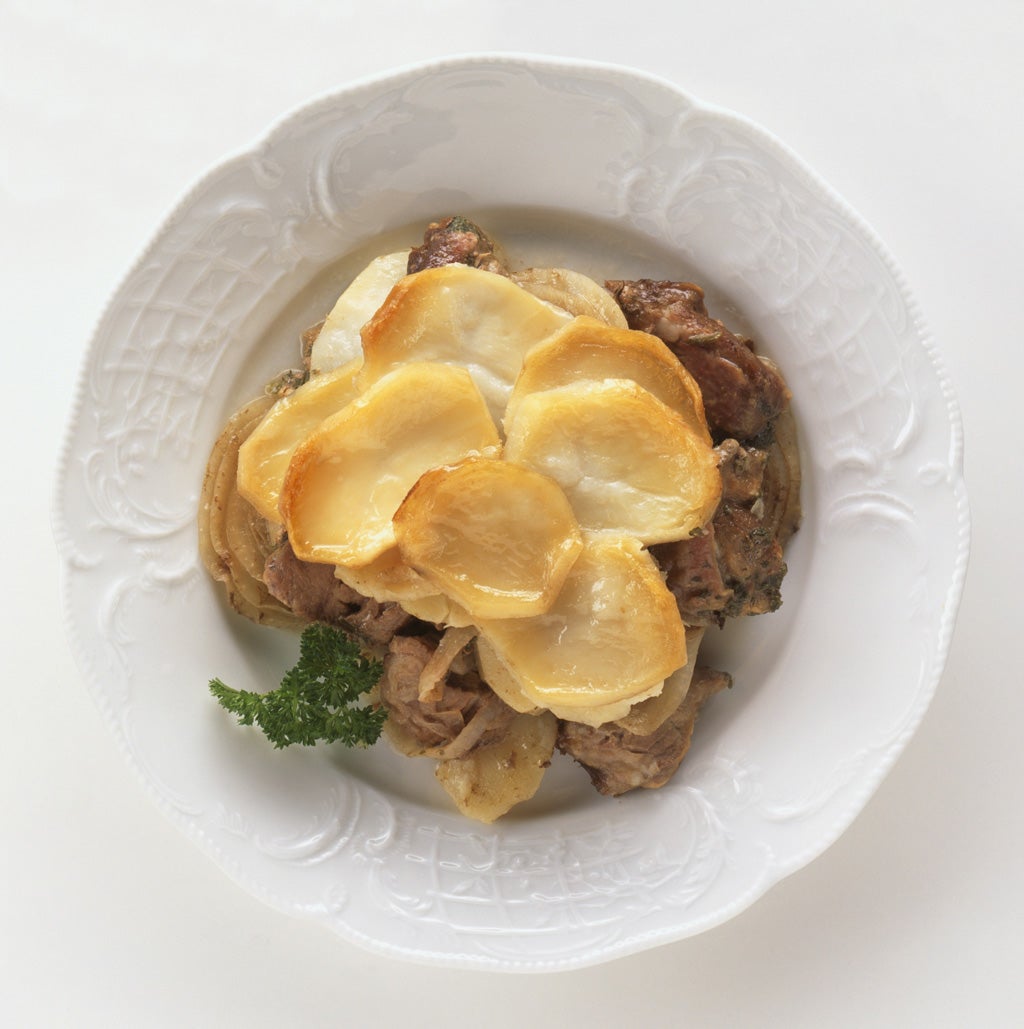Mutton dressed as... Sunday lunch
The most British of meats is back on our tables. Forget your prejudices: cooked long and slow, it's a deliciously tender treat, says Samuel Muston

What did you have for lunch on Sunday? Roasted topside of beef, perhaps? Or maybe a golden roast chicken, corn-fed, plump and bobbing in gravy? The better-heeled of us may even have indulged in some grouse, making the most of the season's final month. The more ascetic, perhaps turkey. One meat I'd bet you didn't sit down to enjoy, fork a-quivering and mouth open, was mutton.
That most British of foods, the toast of the poet, Jonathan Swift – who ate it with oysters – and breakfast of kings – who scoffed it with salt fish and beef – is firmly off the menu for most. Even the word "mutton" sounds archaic and glottal; something from an age of crinolines and penny farthings. We are sophisticates, after all; we eat nice, soft, milky lamb. Two-year-old sheep went out with the ark, right?
Well, as of last week – and for the first time in decades – mutton is back in supermarkets. Waitrose now stocks Duchy Originals mutton chops, rib and shoulder joints in 10 of its supermarkets – after a concerted campaign by the Prince of Wales aimed at helping embattled sheep farmers and getting mutton a bigger slice of the 79.9kg of meat we each eat each year.
And it isn't just shops, either. Some of the capital's finest restaurants are dipping their toes and trying out mutton and wether (castrated male sheep) on their menus. Stevie Parle over at the Dock Kitchen on Ladbroke Grove has started using the omega-3-rich meat in his biryanis. Henry Harris at Racine in Knightsbridge, long a champion of the meat, has roast mutton on his menu. Likewise, Cyrus Todiwala at Café Spice Namaste, uses it in his famous Dhansak.
So how is it that the meat Mrs Beeton spoke of as "first in favour, [with] its fine flavour, digestible qualifications and general wholesomeness" and that is probably chiefly known to the rest of us as being "tough as old boots", is once again finding its way onto the nation's plates and palates?
According to Parle, who worked at the River Café and Moro before opening the Dock Kitchen in 2010, it is simply a matter of superior taste. "I decided to start using it when I found lamb wasn't standing up to the seasoning I was using in some dishes. I wanted something more robust, which is perhaps the best way to describe mutton – robust, deeply savoury and able to stand up for itself. The flavour comes with age. There is an enormous quantity of misconceptions about it. Some customers even ask staff in my restaurant if it's going to be tough."
Ah, yes, toughness. Any conversation about the meat inevitable turns to matter of chewiness. How is it that most of us have come to see mutton as a chewy, stringy and a frankly second-rate meat?
"You can blame the war," says John Thorley of Mutton Renaissance, a group dedicated to raising the meat's profile. "We needed to import meat after it ended and lots of mutton was brought frozen from Australia and New Zealand. The prolonged time in a freezer adversely affected the fat, giving an odd taste and stringy consistency. That's where it picked up its unjust reputation, which wasn't helped by the type of cooking it demands. Nice mutton needs long cooking, so it was seen as not fitting in with modern lifestyles."
Certainly cooking mutton is a different endeavour to cooking lamb. "Good mutton should be cooled immediately after slaughter, so the sinews don't harden, but even then it will have more defined muscle texture than lamb," says Sara Jayne-Stanes, director of the Academy of Culinary Arts, "so you have to treat it differently: slow cooking on a low heat gives tender, rich and gamey meat that melts in the mouth. Most of the cuts don't lend themselves to quick cooking. But that doesn't mean it need be thought inconvenient – you can simply pop a joint in the oven at low heat before you go out in the morning and come back in the evening to something quite spectacularly rich and tasty."
So next week, leave the pork in the fridge, don't defrost the chicken, let the grouse stay in its hedgerow and instead follow Jonathan Swift's injunction for the perfect Sunday...
"Lay the mutton down to roast/ Dress it quickly, I desire/ In dripping put a toast/ That I hunger may remove/ Mutton is the meat I love."
Subscribe to Independent Premium to bookmark this article
Want to bookmark your favourite articles and stories to read or reference later? Start your Independent Premium subscription today.

Join our commenting forum
Join thought-provoking conversations, follow other Independent readers and see their replies